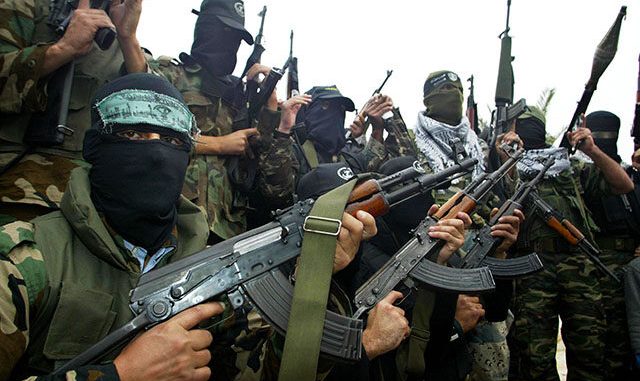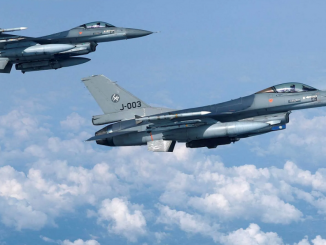
Published September 21, 2025
In a coordinated move that reverberated across international politics, the United Kingdom, Canada, and Australia have formally recognized Palestine as a sovereign state. The decision, announced just days before the UN General Assembly in New York, represents one of the most significant shifts in Western diplomacy toward the Israeli–Palestinian conflict in decades.
Why Now?
The timing of this recognition raises serious questions. On the surface, the UK, Canada, and Australia framed it as a humanitarian response—an effort to revive the two-state solution and offer hope amid the devastation in Gaza. Leaders like Britain’s Keir Starmer argued that without recognition, the possibility of peace would simply vanish.
But a closer look suggests political motivations. Each government is facing mounting domestic pressure from activist groups, left-leaning constituencies, and international NGOs demanding stronger support for Palestinians. Recognition allows these governments to signal moral leadership on the world stage—especially just before the UN General Assembly—while deflecting criticism at home.
There’s also a global shift in public opinion. Younger voters across Western nations are increasingly sympathetic to Palestinians, while Israel is portrayed more harshly in international media. Governments that once stood firmly with Israel now appear willing to recalibrate for political expediency.
Critics argue the timing is reckless. Israel is still engaged in active conflict with Hamas, and recognizing Palestine under these circumstances risks rewarding extremism. The Palestinian Authority itself has not delivered the reforms long promised—such as holding free elections, ending corruption, and eliminating “pay-to-slay” policies that reward families of terrorists. By moving forward now, before these conditions are met, London, Ottawa, and Canberra risk undermining their own stated principles.
Ultimately, the question of “Why now?” reflects a dangerous blend of political calculation and symbolic diplomacy. Instead of reinforcing accountability, these governments may have handed extremists a propaganda victory—at the very moment Israel most needs the solidarity of its allies.
Mixed Reactions
The coordinated recognition sparked immediate and polarized reactions across the globe.
Palestinian leaders quickly celebrated the move, hailing it as a diplomatic breakthrough that restores legitimacy to their cause. Statements out of Ramallah described the decision as “a victory for justice” and claimed it would revive hope for peace. Yet critics point out that the Palestinian Authority—plagued by corruption, overdue elections, and weak governance—has done little to earn such recognition. Meanwhile, Hamas and its sympathizers are likely to spin this as proof that their armed “resistance” is delivering results, even as Western leaders insisted Hamas should have no role in a future Palestinian state.
Israel’s response was swift and scathing. Prime Minister Benjamin Netanyahu denounced the decision as a “reward for terrorism,” warning that it undermines Israel’s security and emboldens its enemies. Israeli officials signaled that diplomatic and intelligence ties with these countries could face strain, while right-leaning voices inside Israel argue that this move proves even close allies cannot be fully trusted when political pressure mounts.
In the West, the fallout is mixed. Pro-Palestinian groups, progressive lawmakers, and activist circles applauded the recognition, describing it as long overdue. But conservatives, Jewish organizations, and pro-Israel advocates condemned the move, calling it premature and dangerous. They argue that rewarding Palestinian statehood without firm guarantees on governance, security, and recognition of Israel’s right to exist not only undermines Israel but also weakens the moral credibility of the recognizing nations themselves.
Internationally, reactions are divided along familiar lines. Arab and Muslim-majority countries praised the recognition and urged others to follow suit, while Israel’s closest ally—the United States—has so far withheld similar recognition, emphasizing that peace must be built on negotiations, not unilateral diplomatic gestures. This sets up potential fractures within the Western alliance, raising questions about whether these three nations prioritized global applause over regional stability.
 Implications of the UK, Canada, and Australia formally recognizing Palestine as a state:
Implications of the UK, Canada, and Australia formally recognizing Palestine as a state:
Security Concerns
-
Rewarding bad behavior: Recognition may be interpreted by Hamas and other extremist groups as proof that violence and terror campaigns yield political results.
-
Israel’s defense at risk: Undermines Israel’s security narrative by weakening international support at a time when it faces constant threats from Hezbollah, Hamas, and Iran-backed militias.
-
Encouraging instability: Could embolden anti-Western actors in the Middle East, who see Western allies abandoning Israel.
Diplomatic Fallout
-
Strained alliances: Moves by the UK, Canada, and Australia may fracture the solidarity of the Western bloc, weakening U.S.-led influence in the region.
-
Trust issues with Israel: Longstanding defense and intelligence partnerships could suffer if Israel perceives its allies as unreliable.
Political Consequences
-
Domestic backlash: Leaders may face criticism at home from voters who view this as undermining a democratic ally (Israel) while rewarding a Palestinian Authority plagued by corruption and linked to groups hostile to Western values.
-
Shift to appeasement: The decision might be seen as catering to activist pressure and public opinion rather than defending principles of counterterrorism and democracy.
Strategic Risks
-
Legitimacy for questionable leadership: The Palestinian Authority has yet to prove it can govern effectively, hold credible elections, or prevent corruption. Recognition without reforms risks empowering weak or hostile leadership.
-
Undermining deterrence: If adversaries see Israel’s closest allies abandoning it, they may feel emboldened to push harder militarily or diplomatically against Israel.
 Overall Takeaway:
Overall Takeaway:
The recognition of Palestine by the UK, Canada, and Australia may be hailed by some as a moral victory, but in reality, it risks empowering the wrong actors and undermining one of the West’s most reliable allies. By offering statehood recognition without concrete reforms from the Palestinian Authority—and while Hamas still wields influence—these governments send a dangerous message: that violence and instability can be rewarded with diplomatic gains.
Instead of fostering peace, this decision could embolden extremists, deepen Israel’s isolation, and fracture long-standing Western alliances built on shared democratic and security values. Israel, the region’s only stable democracy, now finds itself further cornered at a time when it faces existential threats from Iran, Hezbollah, and Hamas.
True progress will not come through symbolic gestures or international virtue signaling. It will come through demanding accountability, pressuring the Palestinian leadership to renounce terror, ensuring transparent governance, and reaffirming unwavering support for Israel’s right to exist and defend itself. Anything less risks prolonging the conflict, not resolving it.
In the end, recognition without responsibility is not diplomacy—it is appeasement. And appeasement in the Middle East has rarely, if ever, led to peace.
SOURCES: BREITBART – UK, Australia, and Canada Recognize Palestine as a State
STRAIGHT ARROW NEWS – UK, Canada and Australia formally recognize Palestinian statehood
REUTERS – UK, Australia and Canada recognise Palestinian state, Israel condemns decision





Be the first to comment